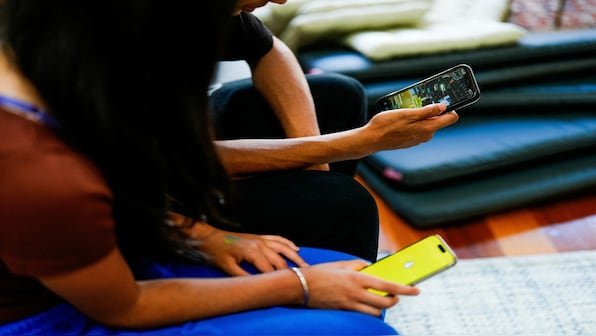
Australia approved a social media ban for children aged under 16 after an emotive debate that has gripped the nation.
The landmark law threatens stiff fines against companies that fail to comply.
Similar to Australia, several other countries have tried to clean up social media through policies like strict privacy laws and prohibitions for minors.
Social media platforms like Facebook, X (previously Twitter), Snapchat, and TikTok were once hailed as ways to stay informed and connected, but reports of election manipulation, the spread of illegal content and fake news, and cyberbullying have since tainted them.
Here’s a look at various attempts by countries to regulate social media policies for children.
Australia
The Social Media Minimum Age bill forces giants from Instagram and Facebook owner Meta to TikTok to stop minors from logging in or face fines of up to $32 million.
A trial of methods to enforce it will start in January, with the ban taking effect in a year.
France
A law mandating social media companies to verify users’ ages and secure parental consent for those under 15 was passed in France in June 2023.
According to the law, social networks that violate the rules face fines of up to one per cent of their global revenue.
However, because the European Commission has not yet verified that the law complies with EU law, it has not taken effect for more than a year.
A high school student poses with his mobile phone showing his social media applications in Melbourne, Australia. Reuters
Germany
According to the country’s rules, children between the ages of 13 and 16 are only permitted to use social media with parental permission.
As of right now, there are no intentions to proceed.
Advocates for child protection, however, argue that controls are insufficient and demand that current laws be properly enforced.
Belgium
In 2018, Belgium enacted a law requiring children to be at least 13 years old to create a social media account without parental permission.
Norway
In Norway, 13 is the minimum age required to access social networks.
However, data indicates that the vast majority of 12-year-olds and more than half of nine-year-olds are active on social media.
Netherlands
Although there is no age limit for using social media in the Netherlands, the government did outlaw mobile devices in classrooms starting in January 2024 in an effort to cut down on distractions.
Exceptions apply for digital lessons, medical needs or disabilities.
Spain
In June, Spain also introduced a bill that would prohibit minors under the age of 16 from using social media.
However, no date has been established for the text’s examination, and it has not yet made clear how age verification works.
Italy
In Italy, children under the age of 14 need parental consent to sign up for social media accounts, while no consent is required from that age upwards.
South Korea
The “Cinderella” law, which was passed in South Korea in 2011, prohibited children under the age of 15 from playing online games between the hours of midnight and six in the morning.
The action was taken in part to reduce school fatigue.
However, a decade later, the government overturned the decision and instituted a “choice permit” system that gave parents the authority to determine when their children might play.
Only a tiny fraction have ever used the system.
In August this year, lawmakers proposed a bill aimed at regulating the use of social media by under-16s.
In response, more than a dozen youth organisations slammed the bill as a discriminatory attempt to control young people similar to the “Cinderella” law.
China
Since the internet is already strictly regulated by the government, it presents fewer obstacles to prevent the youngest members of the population — or any other group for that matter — from using social media in authoritarian regimes.
China is a good example, having implemented access restrictions for minors since 2021.
Douyin, the Chinese equivalent of TikTok, has a daily limit of 40 minutes for users under the age of 14, and children are not allowed to play games online for longer than that.
Young users, younger tech
Pressure to block minors from parts of the internet has been around since pornography and gambling websites overran the early global web.
It has taken on a new urgency since a Meta whistleblower leaked internal emails in 2021 purportedly showing knowledge its products were harmful to young users. Meta, in turn, has said the documents were misinterpreted.
Rising demand has spurred technological development, but no product yet is foolproof when it comes to combining accuracy, privacy, security and user-friendliness, Tony Allen, CEO of the Age Check Certification Scheme, which will test products for Australia on those criteria, told Reuters.
Adding to the challenge, many people in the age range targeted by bans do not have common identifying documents such as a driver’s license or credit card.
That helps the case for age-checking technology involving analysis of a person’s features, such as facial wrinkles or their hand.
With inputs from AFP and Reuters
Content retrieved from: https://www.firstpost.com/explainers/countries-regulating-social-media-for-children-13839900.html.




